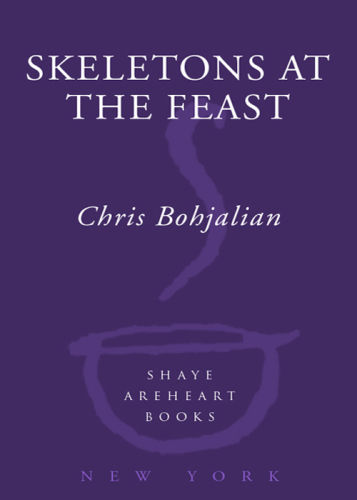
Skeletons at the Feast
A Novel
کتاب های مرتبط
- اطلاعات
- نقد و بررسی
- دیدگاه کاربران
نقد و بررسی

May 5, 2008
In his 12th novel, Bohjalian (The Double Bind) paints the brutal landscape of Nazi Germany as German refugees struggle westward ahead of the advancing Russian army. Inspired by the unpublished diary of a Prussian woman who fled west in 1945, the novel exhumes the ruin of spirit, flesh and faith that accompanied thousands of such desperate journeys. Prussian aristocrat Rolf Emmerich and his two elder sons are sent into battle, while his wife flees with their other children and a Scottish POW who has been working on their estate. Before long, they meet up with Uri Singer, a Jewish escapee from an Auschwitz-bound train, who becomes the group's protector. In a parallel story line, hundreds of Jewish women shuffle west on a gruesome death march from a concentration camp. Bohjalian presents the difficulties confronting both sets of travelers with carefully researched detail and an unflinching eye, but he blinks when creating the Emmerichs, painting them as untainted by either their privileged status, their indoctrination by the Nazi Party or their adoration of Hitler. Although most of the characters lack complexity, Bohjalian's well-chosen descriptions capture the anguish of a tragic era and the dehumanizing desolation wrought by war.

May 1, 2008
Based on a real-life World War II diary, Bohjalian's ("The Double Bind") 12th novel chronicles the last days of the Nazi regime through the eyes of an unlikely threesome. Anna Emmerich, an 18-year-old Prussian aristocrat, along with her mother and younger brother, is making a desperate attempt to journey west across the Reich out of the path of the advancing Red Army. Callum Finnella, Anna's lover and a Scottish POW who worked on the Emmerich family estate, is also traveling with the family. Uri Singer, a German Jew who escaped from a train bound for Auschwitz, is ironically the group's guardian as they travel through Germany. The novel is immensely readable, but the charactersthe Jewish escapee, the heroic Allied soldier, and the beautiful Prussian aristocratseem more like archetypes than individuals. However, Bohjalian takes a fresh perspective and details the brutal realities of World War II in a novel that for once does not focus entirely on the Allies. Recommended for fiction collections. [See Prepub Alert, "LJ" 1/08.]Andrea Y. Griffith, Loma Linda Univ. Libs., CA
Copyright 2008 Library Journal, LLC Used with permission.

























دیدگاه کاربران